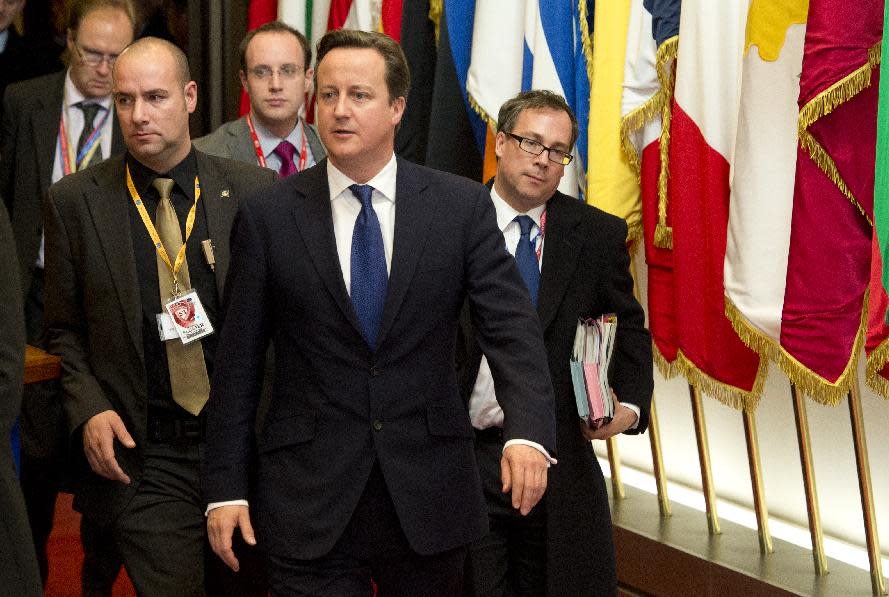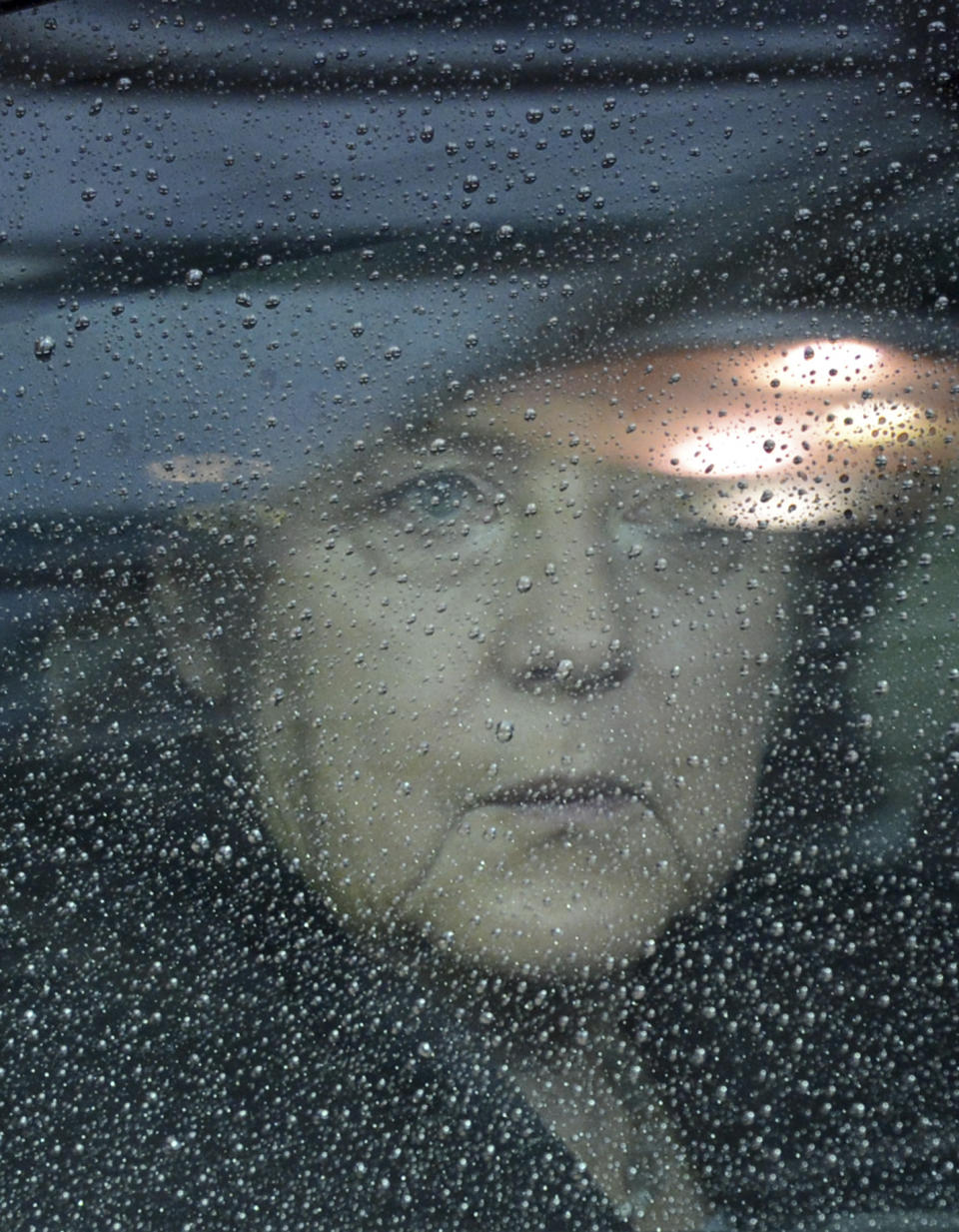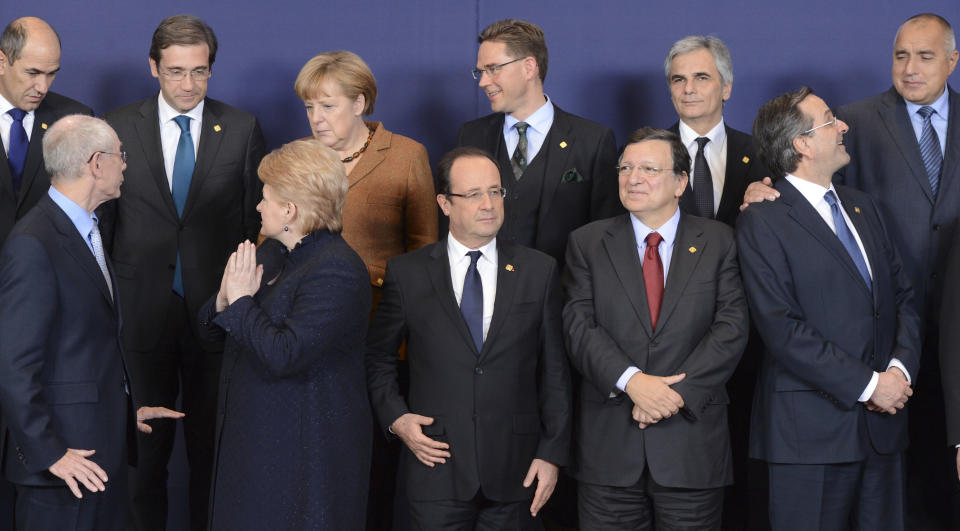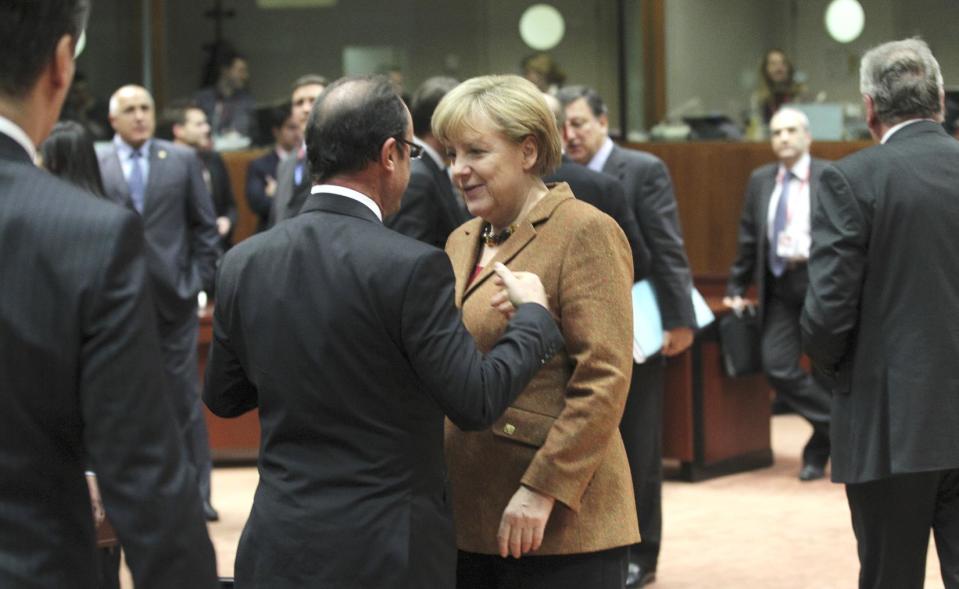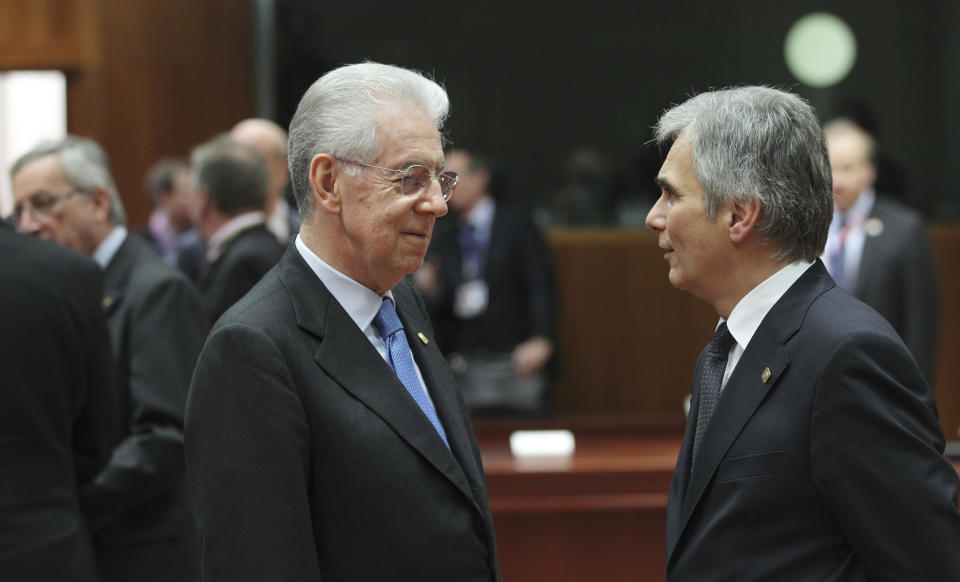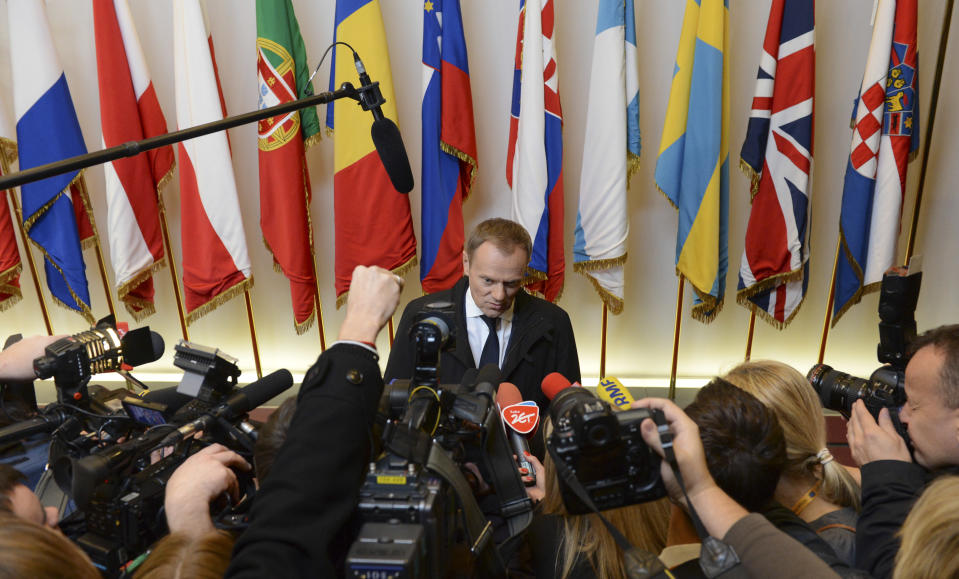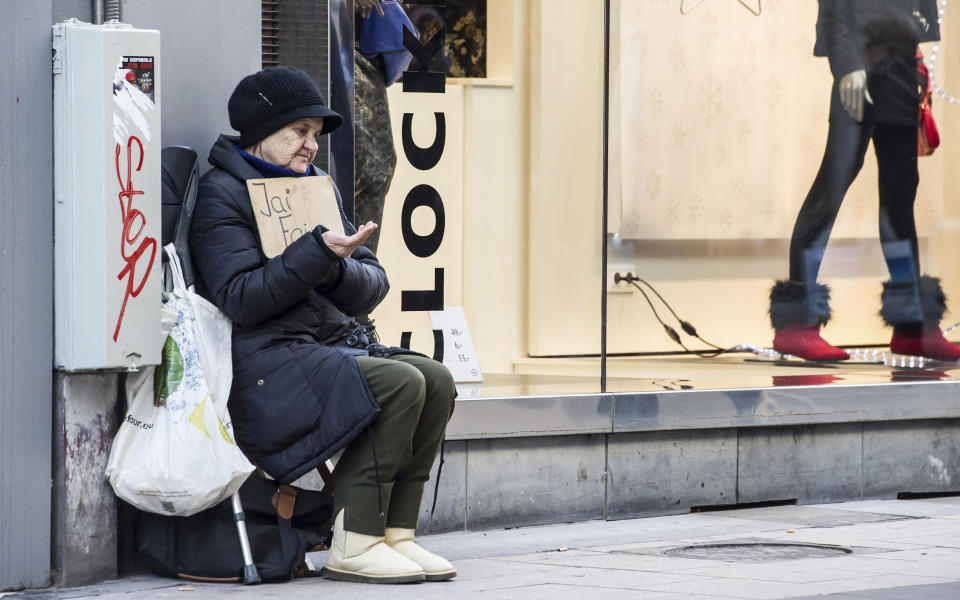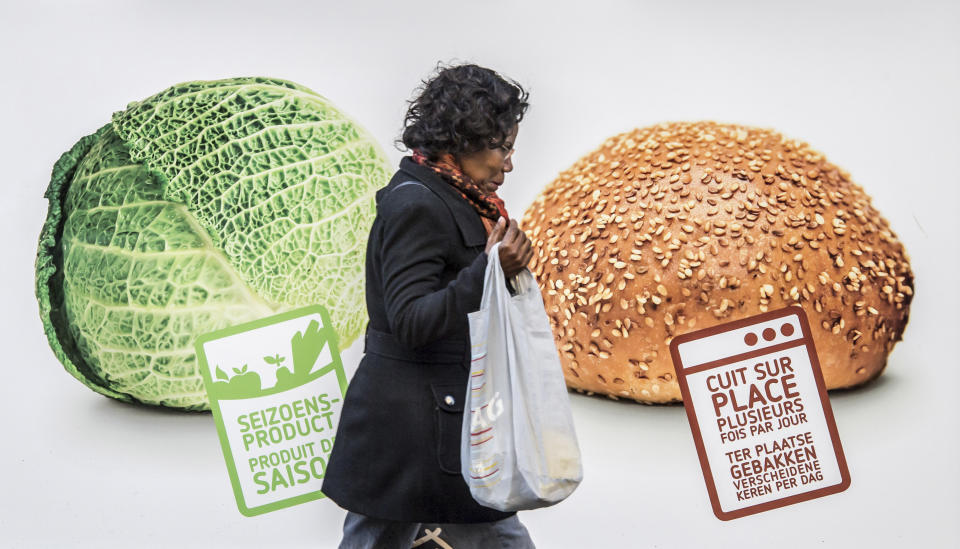Budget clash leaves EU summit close to failure
BRUSSELS (AP) — The prospect of failure loomed over a European Union leaders' summit charged with agreeing on a €1 trillion ($1.25 trillion) long-term spending plan for the 27-country bloc.
As the EU's leaders resumed another round of negotiations Friday, any sign of a deal remained far out of reach. While heavyweights like Britain and France were pulling in opposite directions, smaller members were also threatening to veto a deal in order to make themselves heard.
"I have my doubts that we will come to an agreement," German Chancellor Angela Merkel said early Friday as she left the first day of the talks, which could stretch into Saturday.
The EU budget primarily funds programs to help farming and spur growth in the bloc's less developed countries. In financial terms, the budget amounts to only about 1 percent of the EU's gross domestic product, but carries great political significance as it lays bare the balance of power between the bloc's members.
The bloc is divided, notably between richer countries that want to contain their contributions to the common budget at a time of economic malaise, and poorer ones that rely on EU money for development aid and economic investment.
British Prime Minister David Cameron is the most vocal leader demanding restraint, while French President Francois Hollande wants the budget to keep paying subsidies for farming and development programs for poorer nations.
A revised proposal late Thursday by European Council President Herman Van Rompuy appeared to do little to appease either side. It keeps the same total of €972 billion ($1.25 trillion) in states' commitments as his first proposal — €21 billion less than the 2007-2013 budget — but it shifts some money away from investment projects toward aid for farming and development.
The Council is the gathering of the 27 EU heads of state and government.
Cameron said Friday it was unreasonable to increase the bloc's spending for 2014-2020 when many member states are cutting their national budgets.
"I don't think there's been enough progress so far," Cameron said. "I mean, there really is a problem in terms of there hasn't been the progress in cutting the proposals for additional spending. It isn't a time for tinkering. It isn't a time for moving money from one part of the budget to another. You know, we need unaffordable spending cut. That's what's happening at home; that's what needs to happen here."
Belgian Prime Minister Elio Di Rupo was also displeased with Van Rompuy's proposal — but for precisely the opposite reason.
"The big problem, the basic problem is that there is not enough money," Di Rupo said of the plan. "The basis is that we reduce the overall volume, and this is dramatic because European countries need the support of the EU."
Given the conflicting noises emerging, there was a growing expectation that another summit will be needed.
"We should not consider that if we don't get there tomorrow or the day after, all would be lost," Hollande said.
Britain is backed by other net contributors to the EU budget, such as the Netherlands, Sweden and, to a certain extent Germany. Public sentiment toward the EU in these countries has soured as the institutions — and the common currency, the euro — are considered largely responsible for the financial crisis afflicting the continent.
Meanwhile, 15 of the EU's most financially and economically vulnerable countries have joined forces to oppose any cuts to funds earmarked for economic growth and development. These countries include not only traditionally poorer member states, many in Eastern Europe, but also those hit hardest by the financial crisis, like Greece, Portugal and Spain.
They argue that they need sustained, even increased, help to close the wealth gap on the continent and that EU institutions need the means to implement their jobs and growth policies.
There is no set deadline for a deal, but the closer it gets to 2014, the tougher it will be for a smooth introduction of new programs.
"In talks with colleagues, I had one message. If this doesn't work out at once, let's be sure that the mood is not that dark that we have to spend months on patching up personal relationships," Dutch Prime Minister Mark Rutte said.
If there is no deal up to 2014, there would be a rollover of the 2013 budget plus a 2 percent increase accounting for inflation.
___
Raf Casert contributed from Brussels, Juergen Baetz from Berlin. Don Melvin can be reached at http://twitter.com/Don_Melvin .
